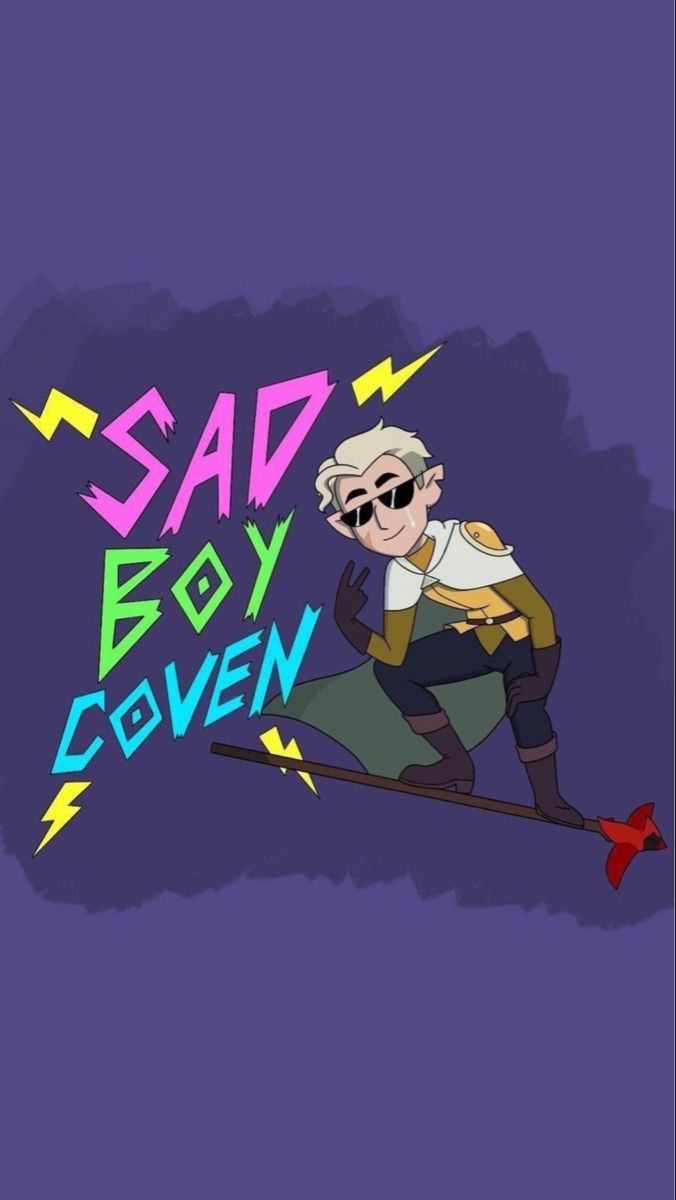- cross-posted to:
- world@lemmy.world
- cross-posted to:
- world@lemmy.world
congrats Brazil 🎉
Unfortunately, it’s just their offices. The service will keep working.
The X service remains available to the people of Brazil, billionaire Elon Musk’s platform said on Saturday.
Wait so what do they mean by stopping operations in Brazil then? Just the offices and staff? The article isn’t super clear on it
They’re just shutting down their local offices in Brazil, which are primarily used to represent X legally.
This is happening because a Supreme Court judge is conducting an inquiry to persecute those he deems propagators of fake news. In most legal systems, it would be considered highly illegal for a judge to conduct an investigative inquiry. It is also illegal in Brazil, but the other members of Supreme Court authorized this inquiry (“in the name of democracy”) and turned a blind eye for all its absurd consequences.
This judge doesn’t need the prosecutor’s office or any private individual to initiate the proceedings. The scope of this inquiry is very broad (fake news as a whole) and has no expiration date, making it potentially eternal. In some cases, he himself is supposedly a victim of fake news, which means this judge potentially occupies three roles: judge, prosecutor, and victim. As a result, ordinary citizens in Brazil can be “summoned” to the Supreme Court’s jurisdiction immediately if the accusations are connected to this Fake News inquiry. Since the Supreme Court is the final jurisdiction for appeals, people unfortunate enough to get caught in this arbitrariness lose the right to appeal the decisions of a judge that is also the de facto prosecutor.
A few days ago, there were some leaks showing this judge’s assistants being asked to write reports against some individuals and news organizations that the judge wants to prosecute. In one instance, where there was no wrongdoing to report about a certain right-wing newspaper, the judge replied to his assistant: “Just look for some spicy allegations and be creative”. So this judge is using his superpowers to direct the investigation to serve his own ends, which mostly involves silencing critics of the Supreme Court and himself.
His most recent power trip involves sending secret orders to X’s Brazilian legal offices, demanding some accounts be blocked, and asking for all information related to these accounts. The judge stipuled daily fines for disobedience. But X’s Brazilian workers don’t have direct control of which accounts are blocked or not, so they tried to appeal to the full Supreme Court judges (which so far has not responded), and no account was blocked or doxxed. The judge then raised the daily fines further and threatened to jail X’s chief lawyer in Brazil, even though this lawyer has no control over what happens to X’s accounts. It’s as if he were threatening to arrest a lawyer for the supposed crimes of his client. To protect these workers from unfair arrests, Elon Musk laid off all workers from X’s local offices in Brazil, effectively closing all operations in the country.
The site and the app will continue working until the judge comes up with some bullshit reason to order all Brazilian ISPs to block access to X’s servers.
Protection of citizens against unjust ruling by a court is a protection-principle of democrary.
Why would you grant such a protection to an organisation aimed to destroy democracy (X/twitter)?
Is being a pro-free speech platform anti-democratic?
If you’re trying to say that some of X’s users are “threatening democracy,” there are already laws in Brazil to address this without resorting to illegality.
The law states that platforms are only required to remove content by a court order, and the content to be removed must be specified. The Supreme Court judge I referred to earlier was blocking entire accounts, which amounts to “preventive censorship,” clearly prohibited by the Brazilian Constitution.
Moreover, this judge created a parallel judicial system where he denies citizens the right to be tried by their local judges: the process goes directly to his desk, and he acts as both prosecutor and judge simultaneously. It’s a gross violation of the principle of due process.
One of the basic elements of a democracy are three branches. In fact, democracy is an inherent instable system where these three branches must keep eachother in check. A natural concequence thereof is that every one of these three branches has the right to conduct and lead investigations.
That the courts can act proactive or reactive is more a cultural element then a core element of democracy. There are quite some countries where judges are part of the investigative process and can unilateral.
As Brazil, as a number of other countries in Latin America, has been in the situation in the past that both the gouvernement and the parlement are controlled by people with a … euh … not so good reputation on their democratic values, a judicial branch that acts in a more proactive manner should not be that IMHO unexptected.
Here there are two issues: free speech and the judicial system in Brasil. I’ll reply to the later in a different mail.
The freedom of speech is the result of democracy. No democracy, no freedom of speech. It is also inherent part of the democractic process.
On the other hand, it is not the only element of a democracy. and it can also be used against these other elements?
My question to you: can you use a fundamental freedom, granted to you by the fact you line in a democracy, to attack democracy?
So in a weird, roundabout way, he’s saving these people from prison by putting them out of work instead?
And probably making it harder for the court to slap fines on his company and make them stick, but I’d give that a pass in this case.
The fines were applied under illegal pretenses. It’s like a castle built on sand.
And X is not entirely safe from being blocked. The messaging app Telegram suffered similar judicial abuses by the same judge during the 2022 elections. Telegram did not have legal representation in Brazil, but the judge threatened to block Telegram in Brazil anyway if they did not establish an office to officially receive his orders there. Then he began his usual judicial harassment campaign against Telegram: secret orders to block dissidents, daily fines, summoning the company’s representatives to testify before the Federal Police, and so on.
At the time, the Supreme Court was openly promoting a legislative bill that would facilitate their censorship efforts. In practice, this proposed law would dismantle the DMCA-like takedown request system that shields platforms from responsibility for user-generated content, something U.S. users take for granted. Please note how absurd it is for the judicial branch to sponsor a legislative bill: it blurs the separation of powers.
The same bill included provisions to appease big media conglomerates, as it would force Google to pay for news snippets on Google Search and Google News. It would also require Netflix to pay residuals to Brazilian actors, even if past contracts did not stipulate anything of the sort. And since the right-wing political spectrum would be the most negatively affected by a censored internet (traditional media is already pro-left), the left-wing portion of parliament also supported this bill. A large consortium was formed in defense of the bill: the Supreme Court, traditional media, artists, left-wing politicians, and the left-wing Executive government itself.
However, Google and Telegram opposed the bill as it interfered with their business and would incentivize arbitrary censorship. Both companies published prominent Op-Eds on their homepages, warning about the severe consequences of this bill. In Telegram’s case, a message was sent to all users criticizing the bill. The Supreme Court judge was livid and ordered Google and Telegram to remove the Op-Eds, accusing them of political interference (as if the Supreme Court was not doing the same by advocating for the bill’s approval). Note that there is no law forbidding companies from expressing their opinions on their platforms; the judge was simply unhinged and fabricated this accusation. The judge even summoned Google’s local CEO to testify before the Federal Police to intimidate the company.
I think they’re just stopping operations of the company in Brazil.
But I don’t think they’re going out of the way to prevent Brazilian IPs from connecting.
Bem-vindo ao Mastodon!
❤️
brb moving to brazil
Please do Europe next
What they do something about disinformation, or fair pay, or something positive for humanity?
As soon as they think there’s money in it.
I believe OP is saying that Brazil doing something positive would be the reason for Xitter ceasing operations there.
Earlier this year, Moraes ordered X to block certain accounts, as he investigates so-called “digital militias” that have been accused of spreading fake news and hate messages
I hate to defend that cesspool of a site, but I don’t think it’s appropriate for social media websites to ban accounts at the whim of foreign governments. Reasonable people should just choose to stop using Twitter altogether and leave it to the Nazis so that it can finally go the way of Gab et al.
Disinformation campaigns are specifically designed to undermine the reasoning capabilities of people by inveigling them into believing (usually emotionally provocative) falsehoods, turning them into misinformation conduits in the process.
It’s like saying that meth should be legal because reasonable people should just chose not to use it, ignoring the social and mental health issues that drive people to consume it against their best interest.
Sometimes the right thing to do is to cut off the head of the snake before it can bite you.
I get that, but Twitter isn’t based in Brazil at all. What happens if, say, China declares that certain posts are “misinformation”? Should those be taken down without complaint?
We routinely censor content to placate China; like, all the time.
I believe each country should get to have a say in what is permissible, and content deemed unacceptable should be blockable by region. I don’t think it’s reasonable to say “well it’s on the internet so it’s untouchable” simply because the server is in another country.
If a government is imposing harmful censorship I think supporting resistance of that censorship is the right thing to do. A company that isn’t located in that country, ethically shouldn’t be complying with such orders. Make them burn political capital taking extreme and implausible measures.
Define “harmful censorship”. I would argue—strongly—that censoring hate speech and misinformation is a public service.
I also think that any service (twitter) refusing to abide by the laws of a country (Brazil) has no place in that country.
deleted by creator
I don’t think it’s the responsibility of X to know the laws of every country; I expect them to respect the wishes of other countries when it is brought to their attention if they want to continue doing business there.
Also, I think we both know that the misinformation we are talking about here has nothing to do with religious beliefs. The context of the linked article clearly indicates that harmful mistruths leading to harmful actions is the subject here.
Yeah well now Twitter has no place in Brazil.
Since my argument isn’t about what should be censored, I’m intentionally leaving the boundaries of “harmful censorship” open to interpretation, save the assertion that it exists and is widely practiced.
I also think that any service (twitter) refusing to abide by the laws of a country (Brazil) has no place in that country.
That could be true in a literal sense (the country successfully bans the use of the service), or not (the country isn’t willing or able to prevent its use). Morally though, I’d say you have a place wherever people need your help, whether or not their government wants them to be helped.
I’m going to challenge your assertion that you’re not talking about what should be considered harmful by pointing out that you are loading your argument substantially by asserting that people need “help” protecting them from “harmful” censorship. Remember that the issue addressed in this thread is Brazil banning X for its promotion of misinformation and hate speech.
Censorship isn’t harmful by default. It is ok to ban people from shouting “fire” in a theater for example, because the shout may result in real harm. Now you can argue that some censorship may be harmful because of its impact on society, such as the removal of books from school hampering fair and complete education or banning research texts that expose inconvenient truths.
But, again the issue here is specifically an attempt to ban misinformation and hate speech; are you going to make an argument that these things are a positive to the community and should be defended as a moral imperative? Frankly it’s a pretty silly stance to take.
I believe each country should get to have a say in what is permissible, and content deemed unacceptable should be blockable by region.
Agreed. But if I’m running a website, I’m not going to block content based on what some other country that I don’t live in wants and why should I?
I’m not sure why it’s so tempting to think of internet content as a special entity that defies otherwise established rules. Maybe it’s simply because no special effort is needed today to get the content across the border?
Regardless, we aren’t talking about your geocities page, we’re talking about billion dollar businesses. Would it be appropriate to take your physical storefront across international borders and insist that the government there should have zero say as to what products you sell? If not, why is it appropriate to do the same with web content? X is selling content in the form of ad distribution, countries should get to decide if that content is appropriate for distribution.
Then they better figure out how to block it, I’m not going to assist the nanny-state.
I’m not sure why it’s so tempting to think that because some government wants a piece of information to disappear, that people should actually make an effort to disappear that information.
I think that’s entirely completely reasonable.
Yeah, that’s only acceptable if it’s right wing government censorship.
Big international companies have no problem to create pseudo “national” versions of services if they can make more money with it.
So there should not be a problem for the social media companies to create versions that meets local legislation.
If you create a product and want to sell it in a certain market, you must also adhere to the laws of that country/region.











